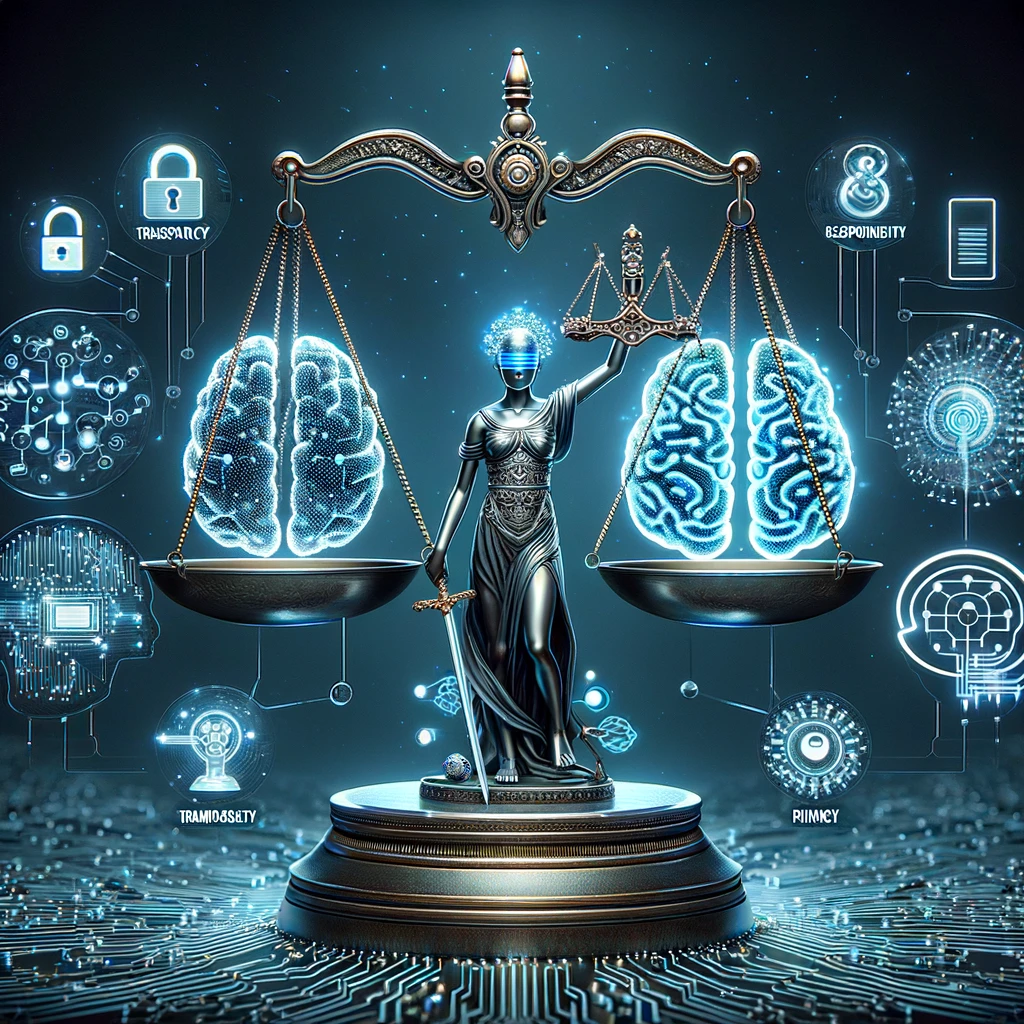Generative AI’s evolution calls for increased attention to ethical AI and responsible innovation. This article explores ethical considerations, challenges, and frameworks guiding AI technologies’ development and deployment, emphasizing the importance of ethics in AI.
Understanding Ethical AI: Ethical AI refers to principles and practices ensuring AI technologies respect human rights and values, encompassing fairness, transparency, privacy, security, and accountability. As AI systems can influence decisions affecting people’s lives, it’s crucial they are ethical by design.
The Pillars of Responsible Innovation: Responsible AI innovation is built on transparency, fairness and equity, privacy and security, and accountability. AI systems should be transparent, bias-free, secure, and accountable for decisions made.
Navigating Ethical Challenges: The path to ethical AI is fraught with challenges, including the pace of technological advancement and the global nature of AI development. Collaboration among stakeholders, the creation of international standards for ethical AI, and education and awareness are essential to navigate these challenges.
Towards a Framework for Responsible AI Use: Developing a framework for responsible AI use involves establishing ethical guidelines, implementing impact assessments, fostering an ethical culture, and engaging with stakeholders.
Conclusion: The journey toward ethical AI and responsible innovation is complex and ongoing. It demands the collective effort of all stakeholders involved in AI technologies’ development and use. By embracing ethical principles and committing to responsible innovation, we can ensure generative AI technologies respect human rights and values, contributing to a more equitable and just society.
